Beach safety tips in Barcelona
Health & Safety in Barcelona
Spain does not pose any major health hazards. The rich cuisine — garlic, olive oil, and wine — may give some travelers mild diarrhea, so take some anti-diarrhea medicine, moderate your eating habits, and, even though the water is safe, drink mineral water only. If you are visiting Barcelona over the summer, limit your exposure to the sun, especially during the first few days of your trip and, thereafter, from 11am to 3pm. Use a sunscreen with a high protection factor and apply it liberally. Remember that children need more protection than adults do.
General Availability of Healthcare — No shots of any sort are required before traveling to Spain. Once there, medicines for a wide variety of common ailments, from colds to diarrhea, can be obtained over the counter at local farmacias (pharmacies/drugstores). Generic equivalents of common prescription drugs are also usually available in Spain. However, it does no harm to bring over-the-counter medicines with you to be on the safe side.
Healthy Travels to You
The following government websites offer up-to-date health-related travel advice.
- Australia: www.smartraveller.gov.au
- Canada: www.hc-sc.gc.ca/index_e.html
- U.K.: www.nhs.uk/healthcareabroad
- U.S.: www.cdc.gov/travel
Common Ailments
Change of Diet — No need to go on a tempting cholesterol binge if you really don’t want to. Vegetarians can follow their usual diet pattern in Barcelona, as there is an increasing number of vegetarian eating spots available as well as a multitude of herbolarios (health food shops).
Sun Exposure — In the hot weather, do as the locals do and avoid the sun between 11am and 3pm. Use a high-protection sunscreen and reapply after swimming in the sea. Take care with kids; give them a sunhat and reapply suncream often.
Sea Hazards — Urban beaches in Barcelona have lifeguards on duty and are marked by flags: Green is safe, yellow means you should take caution, and red means stay out of the sea. Where there are no guards on duty, use your common sense, especially north of Barcelona along the Costa Brava, where the seabed is rocky. Over the past few years the standard of Spain’s beaches in terms of water pollution has improved, leading to a consistently high rating in terms of cleanliness. At the onset of summer, jellyfish can be a problem in the sea. They are not poisonous but do have a nasty sting. If you get stung, get help from the nearest farmacia (pharmacy/drugstore).
Respiratory Illnesses — Lodged between the mountains and the sea, Barcelona often traps smog from its nearby industrial belt. While the quality of the air is monitored, local media do not publish “high risk” days. Common sense is required for people with respiratory illnesses.
What to Do If You Get Sick Away from Home
Spanish medical facilities are among the best in the world. If a medical emergency arises, your hotel staff can put you in touch with a reliable doctor. If not, contact your embassy or consulate; each one maintains a list of English-speaking doctors, as does the website http:\\barcelona.angloinfo.com. Medical and hospital services aren’t free, so take out adequate medical insurance before you travel. In Barcelona you may have to pay your medical costs upfront and be reimbursed later.
If you suffer from a chronic illness, consult your doctor before your departure. Pack all your prescription medications in your carry-on luggage. Carry written prescriptions in generic, rather than brand-name, form, in case a local pharmacist is unfamiliar with the brand. Bring copies of your prescription in case you lose your pills or run out.
Crime & Safety
Terrorism — The bomb attacks on three suburban trains in Madrid on March 11, 2004, resulted in the deaths of 200 people; a direct or indirect consequence of the massacre was that after a massive protest demonstration of two million people in the streets of Madrid, voters unexpectedly returned the left-wing PSOE, or Partido Socialista Obero Español (Spanish Socialist Workers’ Party) to power in the 2004 general elections, after more than a decade of right-wing rule under the PP (Partido Popular, or Peoples’ Party). The policy of the prime minister, Rodríguez Zapatero, had always been to oppose the war in the Middle East, and one of his first acts was to authorize the full withdrawal of Spanish troops from Iraq just over 3 months later.
So there is nothing to suggest that terrorism constitutes a more serious threat in Barcelona than in any other major world city. Travelers to Spain should refer to the guidance offered by their own countries. For U.S. travelers, visit www.state.gov; for U.K. visitors, advice is provided by the Foreign Office at www.fco.gov.uk.
The more local threat comes from ETA, the Basque separatist-terrorist organization. Negotiations between the PSOE government, helmed by Zapatero, and the outlawed Herri Batasuna party — the front for ETA — led to cautious optimism for a peaceful settlement. Of late ETA has become notably silent. Whether this heralds the beginning of the end for them as a purported “political force” remains to be seen.
Conventional Crime — While most of Spain has a moderate crime rate and most visitors have trouble-free visits, the principal tourist areas have experienced an increase in violent crime. Barcelona has reported a growing incidence of violent attacks, with older tourists particularly at risk. Criminals frequent tourist areas and major attractions such as museums, monuments, restaurants, hotels, beach resorts, trains, train stations, airports, subways, and ATMs.
Muggings and pickpocketing are commonplace in La Rambla and the narrow lanes of the Barri Gòtic. Travelers should exercise caution, carry limited cash and credit cards, and leave extra cash, credit cards, passports, and personal documents in a safe location. Crimes occur at all times of day and night, although visitors — and residents — are more vulnerable in the early hours of the morning.
Thieves often work in teams. In most cases, one person distracts a victim while the accomplice performs the robbery. A stranger might ask for directions or “inadvertently” spill something on you. While your attention is diverted, an accomplice makes off with your valuables. Attacks may also be initiated from behind, with the victim being grabbed around the neck and choked by one assailant while others rifle through their belongings. A group of assailants may surround a victim in a crowded tourist area or on public transportation, and only after the group has departed does the person realize they’ve been robbed. Some attacks have been so violent that people have needed to seek medical attention afterward.
Luggage, cameras, or laptops are commonly stolen from parked cars. Don’t leave anything in a parked car, and keep doors locked, windows rolled up, and valuables out of sight when driving. “Good Samaritan” scams are also frequent. The driver of a passing car tries to divert your attention by indicating that you have a mechanical problem. If you stop to check your vehicle, accomplices steal from you as you check the engine. As a rule of thumb, don’t accept help from anyone other than a uniformed member of the police or Guardia Civil.
The loss or theft abroad of a passport should be reported to the local police and your embassy or consulate. For U.S. visitors, refer to the Department of State’s pamphlet, A Safe Trip Abroad, for ways to promote a more trouble-free journey. It’s available online at http://bookstore.gpo.gov or via the Bureau of Consular Affairs home page at http://travel.state.gov.
U.K., Australian, New Zealand, and Canadian citizens who lose their passport must also report it to the local police and to their local Consulate as follows. For Britons: British Consulate General (Edificio Torre de Barcelona, Avinguda Diagonal 477, Barcelona. tel. 93-366-62-00. www.ukinspain.com). For Australians: Honorary Consul for Australia, Avinguda Diagonal 45, 3°, Barcelona. tel. 93-490-9013. For New Zealanders: Consulate of New Zealand, Travessera de Gràcia 64, 2°, Barcelona. tel. 93-202-0890. For Canadians: Consulate of Canada, Plaça de Catalunya 9, 1°, 2ª, Barcelona. tel. 93-412-7236.
Dealing with Discrimination — As Barcelona’s population slowly becomes more international, overt racial prejudice appears to be diminishing. But there is still a small fringe of hard-core racists.
Since the Madrid bombings of 2004, there has been a slight hardening of mood toward Arabs by certain members of the community; and some residents’ attitudes toward Latin Americans have been soured by the appearance (in small numbers) of young criminal gangs in the outer suburbs of the city.
Barcelona is as liberal as any other city in its acceptance of gays and lesbians, including homosexual marriages.
Solo female travelers can expect a reasonably hassle-free trip.
Note: This information was accurate when it was published, but can change without notice. Please be sure to confirm all rates and details directly with the companies in question before planning your trip.
Safety At The Beach In Barcelona – Must Read

Is there anything better after a long day sightseeing in Barcelona than enjoying the last sun rays of the day and refreshing your body in the Mediterranean sea?
Barcelona has 4km of beach (about 2.5 miles) that are there for you to enjoy. However, neglecting beach safety common sense rules can lead to disaster. Keep reading to learn how to stay safe.
These are our golden rules for beach safety:
1
Check the flags
For your physical safety, never enter the water if there is a red flag. Orange flag means relatively powerful waves and recommends to avoid bathing. Green flag announces safe swimming. Blue flags are awarded to the cleanest and best equipped beaches in Europe.
2
Do not leave your stuff unattended
If you will be carrying a bag avoid going alone to the beach or at least do not enter the water leaving your belongings unattended. Locals never do: we take turns to swim so there is always someone from our group staying with our things to watch them out.
3
Ask somebody to keep an eye on your stuff
It is also socially accepted to ask your neighbor to keep an eye on your things. In this case the etiquette says that you shouldn’t stay in the water for more than five to ten minutes, and you mustn’t blame them if something is stolen anyway.
Also, that’s something you can do if you are alone at the beach: if you are with other people, then take turns to get in the water rather than disturbing a neighbor.
4
Cover your belongings
Another good tip is covering your bags with a towel or shawl. Sometimes thieves will grab whatever they can get and run away: if you cover your bags they don’t see what’s underneath and it’s more difficult to get hold of them.
5
Don’t trust dressed people
It might sound funny, but specially at night, when it is so pleasant to have a night swim and enjoy the breeze and the moonlight, it is easy to identify pickpockets because they move in groups and don’t wear swimsuits but regular street clothes. If you feel watched, just move to a place where there is more people.
AND BONUS! One more important idea to stay safe at the beach:
6
Don’t freak out
Thieves can smell your fear. So just do like locals do: relax and just incorporate these little beach safety rules and city safety tips to your beach routine and enjoy yourself. Happy sunbathing!
What are your best beach safety tips?
Marta

AUTHOR BIO Marta is the founder of ForeverBarcelona. She is a passionate tour guide that loves Barcelona and loves writing too. She is the main author of our Blog, and is committed to sharing her knowledge about Barcelona and her best tips with our readers.
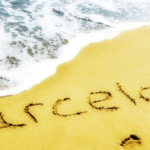

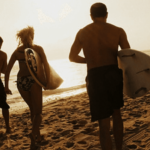

RESEARCHING FOR A TRIP IS TIME-CONSUMING.
Need more inspiration?
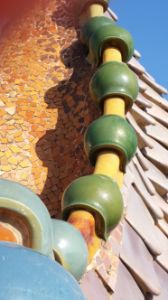
Our 100% FREE Barcelona Collection will give you everything you need to organize the trip of your lifetime to Barcelona. BEST INSIDER TIPS FROM THE PROS!

MORE BARCELONA TIPS FOR YOU:




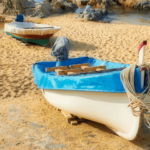

SHARE WITH YOUR TRAVEL MATES
— BEST PRIVATE TOURS IN BARCELONA, SPAIN —

![]()
© ForeverBarcelona 2023 | Registry Number GT-002276
COOKIES, COOKIES, COOKIES!
We use them:
– To make your navigation seamless;
– To enable interactions;
– To gather anonymous statistics and create analytics; Some are third party cookies; Some may be add-related (but rarely);
You can find out more about which cookies we are using or switch them off in settings . And here are our Cookie Policy and our Privacy Policy. Thanks for your trust and confidence!
ACCEPT 🙂 Reject 🙁 Settings
Scroll to Top
Close GDPR Cookie Settings
- Privacy Overview
- 3rd Party Cookies
- Cookie Policy
Privacy Overview
This website uses cookies so that we can provide you with the best user experience possible. Cookie information is stored in your browser and performs functions such as recognising you when you return to our website and helping our team to understand which sections of the website you find most interesting and useful.
3rd Party Cookies
This website uses Google Analytics to collect anonymous information such as the number of visitors to the site, and the most popular pages.
Keeping this cookie enabled helps us to improve our website.
Enable or Disable Cookies
Please enable Strictly Necessary Cookies first so that we can save your preferences!
Cookie Policy
More information about our Cookie Policy
Barcelona
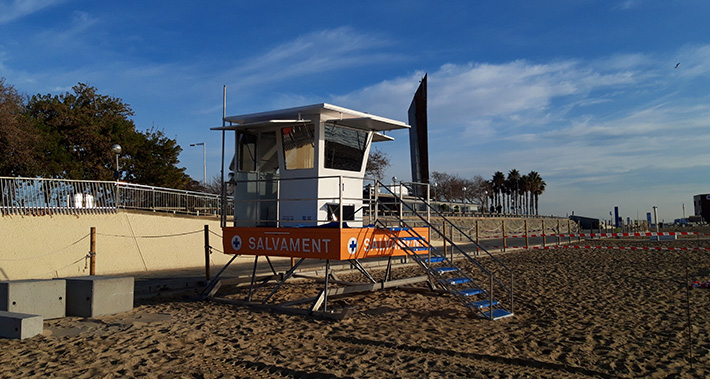
Look up recommendations and good practices to enjoy the beaches and bathe safely.
1. The best bathing is safe bathing. Always respect the beach warning flags.
2. If you follow the lifeguards’ advice, you are sure to have a great time on the beach.
3. Always swim parallel to the breakers and not far from the beach.
4. If you can’t swim or don’t feel confident enough to swim, always bathe near a lifeguard, warn them before entering the water and try not going in deeper than your waist.
5. Do not venture beyond the area marked with yellow buoys and never swim near the breakwaters.
6. It is forbidden to walk on the breakwaters, fish from them or climb up on them to dive back into the water.
7. If you have any problems, let the lifeguard or the person closest to you know by raising your hand and audibly calling for help. Try to keep calm while waiting for help to come. If you have something to help keep you afloat, use it and don’t let go.
8. Beware of currents when bathing. The presence of currents is indicated by the colour of the warning flag. Avoid breakwaters and follow the lifeguards’ advice. If you are caught in a current, never fight it. Stay afloat and call for help.
9. Never pretend to be in difficulties. Remember that when you call for help this activates the rescue service, and you could be preventing the lifeguards from helping someone who is really in trouble.
10. If you notice jellyfish, take the necessary precautions. Don’t swim near them, don’t touch them or try to remove them from the water. In fact, it is best not to swim at all. Never let children play with jellyfish and if stung, ask the lifeguard for help.
11. If there are rocks on the seabed near the beach, take note of the signs and do not dive. A good way to avoid getting hurt is to look into the water before entering it.
12. Recreational surface fishing is allowed in the area established for this on La Barceloneta beach, from 7 pm to 9 pm, and on all the beaches from 9 pm to 10 am.
13. It is best not to consume alcohol on the beach because it slows down the reflexes. If you do, you are advised not to swim or at least to freshen up in the shower before entering the water.
Jellyfish
Jellyfish are marine animals that live in open water. They swim very slowly and are swept toward the coast by the currents in spring and summer.
If you touch a jellyfish, even if it is dead, it can inject a substance into your skin that produces a burning sensation. Contact with the tentacles or parts of them, both in the water and on the sand, can cause injury.
Things to remember
- Avoid areas where waves break because this is where jellyfish remains accumulate.
- Do not swim if there are jellyfish or if the beach monitoring services advise you not to.
- Jellyfish should never be touched or removed from the water, even if they are dead.
- A jellyfish sting feels similar to a burn and causes a skin rash that may reappear several times.
- Contact with the tentacles of a jellyfish can cause local and general lesions: skin rashes, redness, swelling, stinging and severe pain.
- Sun cream, bathing suits and anything that covers the skin help protect against jellyfish.
- People with a record of allergies, asthma or cardiovascular disease, children and those that have already been stung by a jellyfish are more sensitive to the toxin released by these animals.
What should you do if you’re stung?
- Get out of the water.
- Do not scratch or rub the affected area with your hands, a towel or any other material.
- Remove the tentacle remains from skin (with tweezers or gloves), if they are visible.
- Wash the wound with saltwater. Never use fresh water, as this activates jellyfish cells and increases the amount of toxin.
- As soon as possible, fill a plastic bag with ice and apply it for five minutes to the affected area (never put the ice directly on the skin). If this does not soothe the pain, apply the bag of ice for a further five minutes.
- To prevent the wound from becoming infected, an antiseptic (iodized alcohol) should be applied 3-4 times a day for two or three days.
- These measures must be taken as soon as possible. If there is no improvement or the sting causes trembling, nausea, dizziness or severe pain, go to a hospital.
In any case, if there is a lifeguard post on the beach, go there immediately for help.
Information taken from a pamphlet published by the Health Department of the Generalitat of Catalonia, with advice from the Institute of Sea Sciences of the CSIC and the Clinical Toxicology Department at the Hospital Clínic de Barcelona.
This pamphlet can be found at all the first-aid and information points on Barcelona’s beaches.
And don’t forget:
Good practices for enjoying the beach
- The beach is a huge common space. Look after it and share it.
- Opt for separate collection and deposit your waste in the correct recycling bin: empty containers in the yellow bin and all other waste in the grey bin.
- If you smoke, don’t leave ashes or cigarette butts in the sand. Reusable beach ashtrays are available from information points.
- Keeping the water clean is your responsibility too.
- There is a place for everything and everyone on Barcelona’s beaches. Choose the beach that best suits what you feel like doing.
- If you want to listen to music, wear headphones.
- If you want to play, use the designated areas where you can play all kinds of beach sports.
- Respect the areas marked out as boat entry and departure points.
- If you treat the showers and toilets with care, you will always find them clean and ready to use.

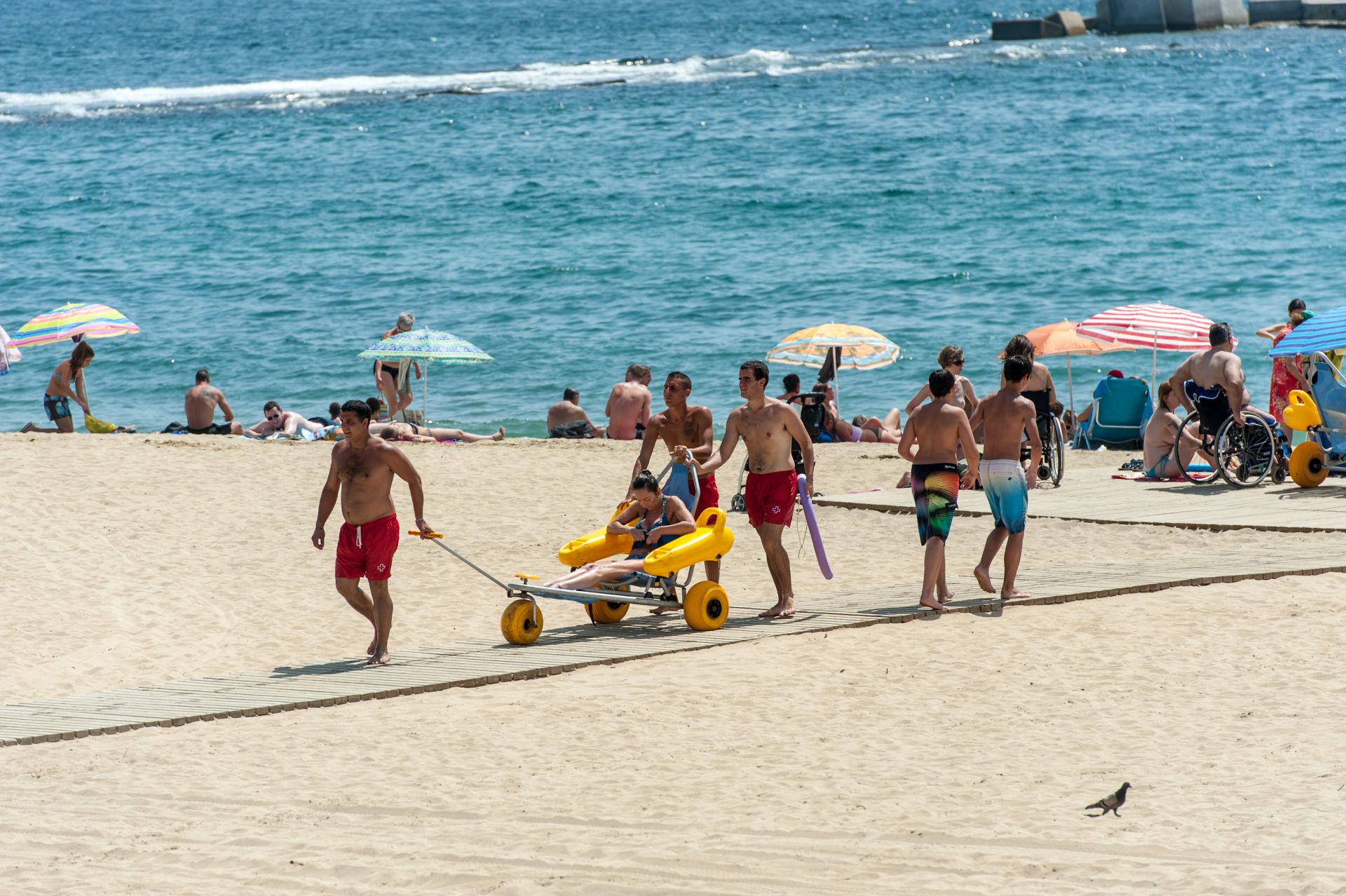
Leave a Reply